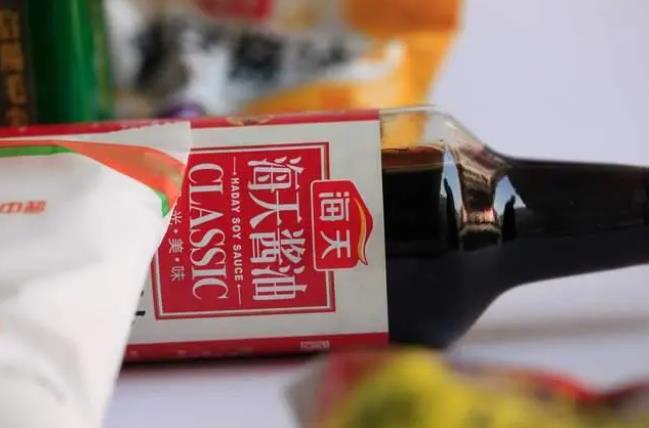Chinese condiments giant Foshan Haitian founds itself in hot water on Monday as the company’s share prices nosedived nearly nine percent, marking a loss of over 30 billion yuan in its market value.

File photo
Haitian has faced accusations of using substandard ingredients such as flavor enhancers, preservatives, and sweeteners in its soy sauce products sold domestically. In a recent statement, the company refuted accusations of “double standards” by saying the condiments line has a range of options, including ones with less additives, for domestic consumers to choose from.
The company’s response to the public wasn’t as well received. To understand the Haitian PR crisis, one needs to follow #HexTechknowlogy, a trending hashtag on Chinese social media. Originally a gaming term in League of Legends, it’s now used as a sarcastic reference to the “food magic” created by additives.
Since September 10, a blogger named Xin Jifei (@辛吉飞) began showing how mixed food additives can simulate the smell, and even taste of real foods and beverages in a series of videos published on Douyin, the Chinese version of Tik Tok.
Xin did not mention any brands in his review videos but viewers were prompted to study the ingredient lists of products in their households and consider whether their food additive intake over the years had reached astronomical levels without their knowing it.
Part of the reason why this topic has become such a hot potato is because there remains a gap in the understanding of the actual functions of food additives for most regular consumers. In a virtual conference held on Tuesday, Wang Silu, an expert in food safety and nutrition, stressed that food additives and banned additives are “absolutely not the same.”
“Food additives and banned additives are two different concepts,” Wang said. “We need to look at it with a scientific and fair eye and never make food additives a scapegoat for illegal additives.”
According to the World Health Organization, food additives are substances added to food to maintain or improve its safety, freshness, taste, texture, or appearance. The list of food additives is long but some of the most commonly used ones include preservatives, sweeteners, color, flavor enhancers, and emulsifiers.
Illegal additives, by definition, are chemical substances which are not supposed to be used in food processing, such as clenbuterol, tripolycyanamide, and Sudan Red G, which were seen in previous news reports and can be very harmful to human health. In 2005, China’s Ministry of Health banned the use of Sudan Red G as a food additive after detecting the carcinogenic industrial coloring agent in several food samples including chili sauce and chili powder manufactured in Guangzhou, South China’s Guangdong Province.
He also noted that “additive-free” does not necessarily mean high standards. “Real zero-addictive food barely exists,” Wang said. “Modern food production can’t do without food additives, which offer immense support. It’s more of how it’s presented and the percentage.”
Xin Jifei has shut down his Douyin account, but reiterated that everything he has done is only to call the public’s attention to the side effects of food additives.
A piece published by the Economic Daily stated “as long as food additives meet national food safety standards and are used according to the regulation, they will not cause food safety issues. We should only object to excessive use and abuse of food additives.”
The article also offers enterprises a different perspective through which to look at the controversy. “Enterprises should see the hidden opportunities while explaining the truth. From eating to the full to eating well, demand from the people points the direction to be followed by the food industry on how to progress,” it added.


